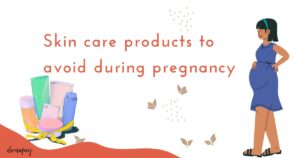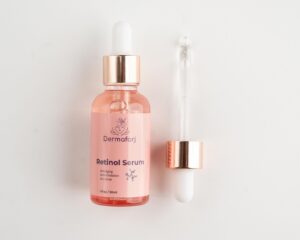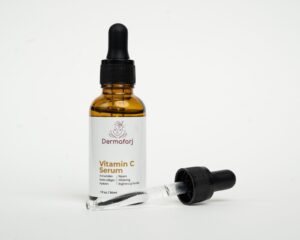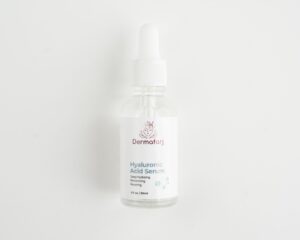
SkinCare products to avoid during pregnancy. As an expecting mother, you want to do everything in your power to ensure the health and well-being of your unborn child. This includes making careful choices when it comes to the products you use on your skin. Unfortunately, many skin care products contain ingredients that are potentially harmful to a developing fetus, which is why it’s essential to know which ones to avoid. In this article, we’ll go over the most common skincare ingredients to watch out for during pregnancy and provide alternative options that are safe for both you and your baby.
Ingredients to Watch Out For:
One of the most critical factors to consider when choosing SkinCare products to avoid during pregnancy is the ingredients they contain. While the vast majority of cosmetics are safe for most people, some ingredients have been linked to health problems in developing fetuses. Here are some of the most commonly used ingredients to avoid:
Retinoids:
Retinoids are a family of compounds that are commonly used in anti-aging skin care products. However, these compounds have been linked to birth defects and other health problems in fetuses, so it’s best to avoid them during pregnancy.
Phthalates:
Phthalates are a group of chemicals that are used as softeners in many cosmetics, including skin care products. They have been linked to a range of health problems, including birth defects and developmental issues in fetuses, so it’s best to avoid them during pregnancy.
Parabens:
Parabens are a group of preservatives that are commonly used in cosmetics, including skin care products. They have been linked to endocrine disruption and other health problems, so it’s best to avoid them during pregnancy.
Hydroquinone:
Hydroquinone is a skin-lightening agent that is commonly used to treat dark spots and hyperpigmentation. However, it has been linked to health problems in fetuses, so it’s best to avoid it during pregnancy.

Safe Alternatives for Pregnant Women:
While it can be challenging to avoid these harmful ingredients, there are still plenty of safe and effective skincare options available to expecting mothers. Here are some of the best alternatives to consider:
Plant-based ingredients:
Look for skincare products that contain plant-based ingredients, such as aloe vera, chamomile, and lavender. These ingredients are gentle and safe for both you and your baby.
Mineral-based products:
Mineral-based skin care products, such as zinc oxide and titanium dioxide, are also safe for use during pregnancy. These ingredients provide natural sun protection and are gentle on sensitive skin.
Fragrance-free products:
Many skin care products contain fragrances, which can irritate sensitive skin and cause allergic reactions. During pregnancy, it’s best to opt for fragrance-free products to minimize the risk of skin irritation and allergic reactions.

Importance of Consultation with a Healthcare Professional:
While this guide provides a comprehensive overview of the skin care products to avoid during pregnancy and safe alternatives, it’s essential to consult with a healthcare professional before making any changes to your skincare routine. Your doctor or midwife will be able to provide personalized advice and guidance based on your individual health needs and the stage of your pregnancy.
Why Is It Important to Avoid Certain Skin Care Products During Pregnancy?
During pregnancy, a woman’s body goes through a range of changes, including hormonal fluctuations and increased blood flow. These changes can affect the skin, making it more sensitive and prone to irritation. Additionally, some skincare ingredients can be absorbed into the bloodstream and potentially reach the developing fetus, where they can cause harm. This is why it’s crucial to be mindful of the products you use on your skin during pregnancy.
Furthermore, the skin can also act as a barrier to protect the fetus from harmful substances. However, if the skin is damaged or irritated, this barrier can become compromised, potentially allowing harmful substances to reach the developing fetus. This is why it’s essential to choose skin care products that are gentle and safe for use during pregnancy.
Common Skin Care Concerns During Pregnancy:
Pregnancy can bring with it a range of skincare concerns, including:
- Stretch marks: Stretch marks are a common concern for many expecting mothers, as the skin stretches and grows to accommodate the growing fetus.
- Acne: Hormonal changes during pregnancy can cause an increase in oil production, leading to the development of acne.
- Dark spots and hyperpigmentation: Increased hormone levels during pregnancy can cause an increase in the production of melanin, leading to the development of dark spots and hyperpigmentation.
- Dry skin: The increased blood flow during pregnancy can cause the skin to become dry and flaky.
How to Choose Safe Skin Care Products During Pregnancy:
When choosing skin care products during pregnancy, it’s important to look for products that are:
- Free from harmful ingredients: As we discussed earlier, it’s essential to avoid certain ingredients, such as retinoids, phthalates, parabens, and hydroquinone, which have been linked to health problems in fetuses.
- Gentle and nourishing: During pregnancy, it’s important to choose skin care products that are gentle and nourishing, as the skin can become more sensitive and prone to irritation.
- Fragrance-free: As we mentioned earlier, it’s best to opt for fragrance-free products during pregnancy to minimize the risk of skin irritation and allergic reactions.
Conclusion:
In conclusion, choosing safe and effective skincare products during pregnancy is essential for the health and well-being of both you and your unborn child. By avoiding harmful ingredients, opting for safe alternatives, and consulting with a healthcare professional, you can ensure that you are making the best choices for your skin during this exciting and transformative time.


